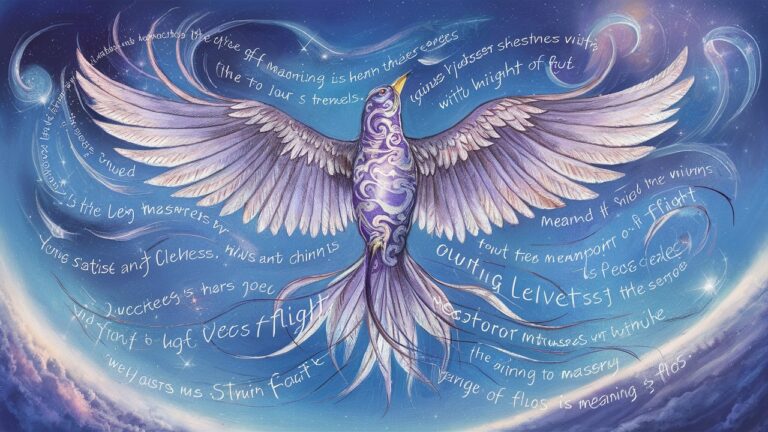Introduction: The Human Hunger for the Sky
Since ancient times, humans have gazed at birds with envy and wonder, dreaming of breaking earthly bonds. Flight represents not just physical movement but liberation—a triumph over gravity that mirrors our quest to transcend limitations. From Icarus’ mythical wax wings to the Wright brothers’ rattling biplane, aviation has shaped history, culture, and our very self-perception. Quotes about flight crystallize these aspirations, fears, and revelations, distilling centuries of awe into words that resonate across generations. They capture the alchemy of courage, science, and artistry that transforms runway dreams into cloud-sliced reality, reminding us why the sky remains humanity’s most compelling canvas.
The Eternal Allure: Capturing the Magic of Flight
The enchantment of flight defies simple explanation. Aviators and poets alike struggle to articulate the sublime fusion of terror and beauty encountered aloft. Charles Lindbergh described it as feeling “too God-like to be attained by man,” where the world below seems “too wonderful, too distant for human eyes to see” 14. This paradox—of humility and exaltation—permeates aviation lore. Richard Bach’s Jonathan Livingston Seagull framed flight as spiritual pursuit: “For this gull, it was not eating that mattered, but flight” 1. Alberto Santos-Dumont likened aerial navigation to “tobogganing in curves and spirals through the sky,” a sensation of weightless freedom 1.
Beyond exhilaration, flight offers perspective. Antoine de Saint-Exupery declared, “I fly because it releases my mind from the tyranny of petty things” 4, while Socrates saw it as intellectual emancipation: “Man must rise above the Earth—to the top of the atmosphere and beyond—for only thus will he fully understand the world” 4. Mark Twain, though describing Lake Tahoe’s air, inadvertently captured aviation’s purity: “The air up there is very pure and fine, bracing and delicious… it is the same the angels breathe” 1. These voices affirm that flying reshapes our relationship with the Earth and ourselves.
Through the Cockpit: The Pilot’s Perspective
To pilots, flight transcends transportation—it becomes identity. Buzz Aldrin distilled the fighter pilot’s psyche: “They have ice in their veins. They don’t have emotions. They think, anticipate” 4. José María Velasco Ibarra romanticized aviators as souls “purified in the sky” who “receive communion of the infinite” 4. Their wisdom blends poetry with practicality. Amelia Earhart emphasized self-mastery: “Flying isn’t just about controlling the machine; it’s about understanding and controlling yourself” 7, while Neil Armstrong celebrated sailplanes as the closest humans come to being birds 1.
Aviators also trade dark humor as armor against peril. The propeller, joked one, is “a big fan to keep the pilot cool. When it stops, you watch him sweat” 412. Their ethos balances risk and reverence: “Every takeoff is optional. Every landing is mandatory” 4. And they measure success in survival: “A ‘good’ landing lets you walk away; a ‘great’ landing lets the plane fly again” 4. These insights reveal a tribe uniquely wedded to the heavens.
Wings of Wisdom: Lessons from the Sky
Aviation’s legacy brims with hard-won truths. The adage “There are old pilots and bold pilots, but no old bold pilots” 412 warns against hubris, while “You start with a bag of luck and an empty bag of experience. Fill the latter before emptying the former” 4 champions humility. Eddie Rickenbacker saw proof in flight that humans “achieve the impossible” 3, and Wilbur Wright traced our aerial yearning to ancestors who envied birds soaring “above all obstacles” 34.
For Leonardo da Vinci (misattributed though it was), flight irrevocably transforms: “Once you have tasted flight, you will walk the earth with eyes turned skyward” 14. Konstantin Tsiolkovsky saw the sky as destiny: “The blue distance, the mysterious Heavens… beckon humanity to rise” 1. These lines crystallize aviation’s role as both mirror and engine of human progress—where courage meets curiosity.

Laughter Aloft: Aviation’s Comic Relief
Pilots defuse tension with irreverence. George Carlin mused, “If black boxes survive crashes, why not build the whole plane from that stuff?” 412. Others jest about the kamikaze pilot’s helmet as “life’s great mystery” 4 or the futility of blaming air traffic control: “If ATC screws up, the pilot dies” 4. Travelers chuckle at airport logic (“Drinking at 8 AM is socially acceptable”) or packing woes (“I need 3 outfits but pack 35”) 8. Even Douglas Adams reduced flying to “throwing yourself at the ground and missing” 39.
This humor does more than entertain—it bonds communities facing shared vulnerabilities. It acknowledges the absurdity of defying physics in aluminum tubes while celebrating our audacity to try.
Flight and Wanderlust: Soaring Beyond Boundaries
Aviation fuels global connection and self-discovery. Ibn Battuta noted travel “leaves you speechless, then turns you into a storyteller” 511, while David Mitchell claimed we “meet ourselves” in distant lands 511. For Cesare Pavese, travel’s brutality—forcing trust in strangers and loss of comfort—is its transformative power 511. Anthony Bourdain agreed: it “should change you,” leaving marks on memory and heart 11.
Couples find romance in shared journeys (“I want to travel the world twice: once to see it, once to see how you see it”) 11, and solo travelers embrace Flaubert’s realization that flying reveals “what a tiny place you occupy in the world” 11. Mark Twain tied wings to tolerance: “Travel is fatal to prejudice” 11. Flight, in these voices, is the bridge between exploration and empathy.
Conclusion: The Unending Ascent
Quotes about flight form a mosaic of humanity’s highest hopes and hardest lessons. They remind us that flying is more than physics—it’s philosophy. From Richard Bach’s seagull chasing perfection to Chuck Yeager declaring “the sky is not the limit, but the beginning,” these words anchor us to our history while urging us toward horizons still unclaimed. As long as we watch birds arc across clouds or feel our hearts lift with a departing jet’s roar, flight will remain our most potent metaphor for freedom. In the cockpit, the cabin, or the grass-stained field where dreamers watch the sky, we keep reaching—because, as Seneca knew, “a time will come when our descendants will be amazed we did not know things plain to them” 1. Our journey upward has only just begun.
Frequently Asked Questions
1. Did Leonardo da Vinci really write, “Once you have tasted flight…”?
No. Despite widespread attribution, this iconic line was not penned by da Vinci. Research by aviation historians traces it to 20th-century sources, possibly journalist John Secondari. The misattribution highlights how easily poetic truths can be mythologized 14.
2. Why do pilots describe flying as addictive?
Aviators like Patty Wagstaff joke, “Life doesn’t get complicated until you land” 1, while Charles Lindbergh repeatedly answered “Fly” when asked about his future plans. The addiction stems from flight’s unique blend of sensory richness (cloudscapes, silence above weather), technical mastery, and transcendent perspective 14.
3. Can non-pilots relate to aviation quotes?
Absolutely. Metaphors like “old pilots and bold pilots” apply to risk management in any field. Travel quotes (e.g., “Not all who wander are lost”) resonate with anyone seeking growth. Flying mirrors life: requiring preparation, adaptability, and sometimes, trusting instincts over instruments 311.
4. What’s the funniest aviation wisdom?
Dark humor abounds: “Flying isn’t dangerous; crashing is” 412. George Carlin’s “black box” quip remains legendary, while the definition of a “good landing” (walking away) versus a “great landing” (reusing the plane) never fails to elicit wry smiles from crews 412.
5. How do flight quotes inspire innovation?
They reframe impossibility. Sir Richard Branson called flight’s fascination “beyond human endeavor” 7, while Eddie Rickenbacker saw aviation as “proof dreams come true with courage” 3. These ideas fuel pioneers in aerospace and beyond—removing mental barriers before physical ones.
